The Anthropology of Christ’s Resurrection
We have to understand that Christ came into a world that was very different from ours. Sure, our world is still very much like the world of ancient times, but there are core differences that, when noticed, make us aware of how Christ changed the course of humanity.
When Christ appeared in history there was no such thing as a universal worth of human life. The most advanced civilization at that time—the Romans—punished criminals by flogging, beheading, impaling, crucifixion, and other equally cruel methods. Anyone who went against the “son of God” Caesar was deemed a criminal fit for prosecution. The postmodern culture of our time has a tendency to look at pre-Christian Europe with rose-tinted glasses, but let us not kid ourselves; Rome enjoyed human murder and gave it the status of “sport” in their culture.
It should be apt to describe ancient civilizations as societies in awe of death. The gods of death were given equal stature as the gods of life; that is why ancient peoples worshipped Hades, Yama, Osiris, Angra Mainyu, and others, all of whom ruled the underworld of their respective cultures. Even the Hebraic people feared death in the form of a geographic location called Gehinnom where child sacrifices were routinely carried out.
Death was seen as one of the most important pillars of civilized society; without the passing of the old, there wouldn’t be the arrival of the new. There couldn’t be a new world order without the death of the old world order. And so death was revered; it was not to be trifled with.
It stands to reason that a civilizational reverence of death, often in the most grotesque of manners, stifles progress and, more importantly, the emergence of the human person. The worship of death permeates a culture of slavish hopelessness, where the human person, under the continual sway of nature, is too tired to engage in creativity, and where technology is only concerned with the destruction of life.
A culture of death is the modern cubicle life writ large, and it is because of Christ that we recognize this tragic fact. When Christ called Lazarus from the grave, the priests were terrified; they feared that their entire way of life would be uprooted (John 11:48). The conspiracy to kill Jesus began with the fear of death’s retribution, and at Calvary, death attempted to subdue this Trespasser who would dare challenge its authority. But death would not be victorious.
When Jesus rose from the dead, He changed the trajectory of history. No longer was death considered something to be feared; in fact, many of Christ’s disciples willingly laid down their lives in the face of persecution, signifying that death will not have the final word over them. Death was used as a threat against the early Christians and as a reminder that their lives, like all others, belonged to the ruler of the underworld; but the Christians, following in the footsteps of their Savior, made a mockery of this worldly threat by bringing life in death.
Christians sing that Christ “trampled down death by death.” This means that Christ made death swallow itself with His own death and resurrection. Because death had forced humanity to exist in a circle of misery and despair, Christ inverts the Ouroboros and tricks the serpent into eating itself. The ancient circle—nature’s dominion over man—of life, death, rebirth, and suffering is made meaningless by Christ as He gives way to the revitalization of humanity.
No longer is it necessary for humans to exist in a state of imprisonment. Might does not make right anymore. Death had made it necessary for humans to survive through suffering, but Christ eviscerates this necessity by bringing life through His own suffering. Had the Gospel ended with Christ’s death, humanity would have been thrown back into the meat grinder of Gehenna. Christ saves human history with His resurrection. He did not simply resurrect as God but also as a human being, thus making it possible for human beings to share in the spoils of the Creator’s victory.
What are the spoils of Christ’s victory over death? The spoils of the resurrection are the energies of the triune God (2 Peter 1:4): freedom of choosing a multiplicity of good and creativity as the means of achieving those goods. No longer is it a necessity to exist in a state of slavish conformity to nature. Man has been bestowed with the gift of radiant creativity, and through that creativity, whether it be in the arts or sciences, man finds personhood—the likeness of God in him—and the uplifting of fellow man—the mutual and societal glorification within the Trinity.
With the resurrection of Christ, death becomes something that is unnatural to us all. When we are faced with death, we instinctively recoil because death is the defeated enemy that is always looking to creep in and disrupt our God-given vocation of glorifying our neighbor. The resurrection of Christ makes it possible for us not only to tell stories of courage, sacrifice, romance, etc. but also of salvation, reconciliation, and redemption. The resurrection of Christ makes sure that humanity has a happy ending.

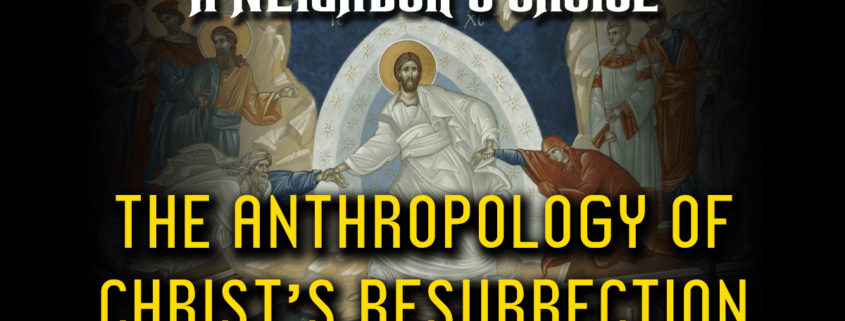
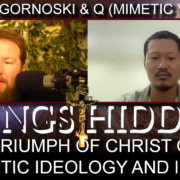

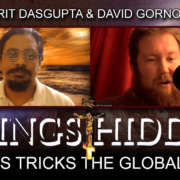
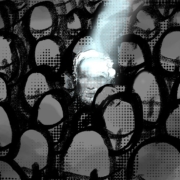



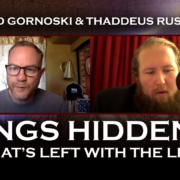
Leave a Reply
Want to join the discussion?Feel free to contribute!